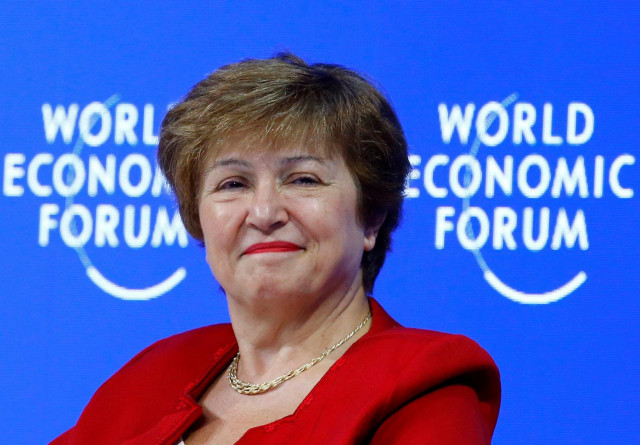World Bank's Georgieva to be first IMF chief from emerging economy
She will face host of challenges including global economic slowdown

She will face host of challenges including global economic slowdown. PHOTO: REUTERS
A centre-right politician who grew up in Bulgaria under communism, Georgieva has built a reputation during her time at the World Bank - where she has been on a leave of absence from her post as chief executive officer during the IMF nomination process - and the European Commission as a tenacious straight-shooter, champion of gender equality and leader in the global fight against climate change.
She will face a host of challenges as the head of the IMF, the world's crisis lender with $1 trillion in firepower, including a global economic slowdown triggered by escalating trade tensions between the United States and China.
In addition, the United States, which represents the largest voting bloc on the IMF board, has withdrawn from multilateral accords, and risks are growing in emerging markets like Argentina, which last year received a $57 billion bailout, the IMF's largest ever.
The IMF's executive board interviewed Georgieva, 65, the sole nominee for the job, on Tuesday, and is due to vote on her nomination on Wednesday.
The vote is largely ceremonial. Georgieva, backed by French President Emmanuel Macron, last month won support from the rest of the European Union, as well as tacit backing from the United States.
An IMF board source told Reuters that Georgieva was ready for the job. "She has convinced the board that she is the leader that the institution needs and will be a strong advocate for the multilateral system," the source said, speaking on condition of anonymity because the board's deliberations are not public.
Her likely confirmation has spawned great pride in her home country, with some newspapers lauding it as evidence of both Georgieva's own qualities and as a diplomatic success.
"Only 20 years ago, Bulgaria was among the countries with an IMF rescue programme," the leading financial newspaper Kapital said earlier this month. "The nomination of the former Bulgarian EU commissioner should be seen not only as her personal acknowledgement, but as a diplomatic success for the country."
Georgieva will replace Christine Lagarde, who became the first woman to head the IMF when she took the helm in 2011. Lagarde, 63, guided the lender through the European sovereign debt crisis, which began about a month after she took office. She is departing to head the European Central Bank.



















COMMENTS
Comments are moderated and generally will be posted if they are on-topic and not abusive.
For more information, please see our Comments FAQ